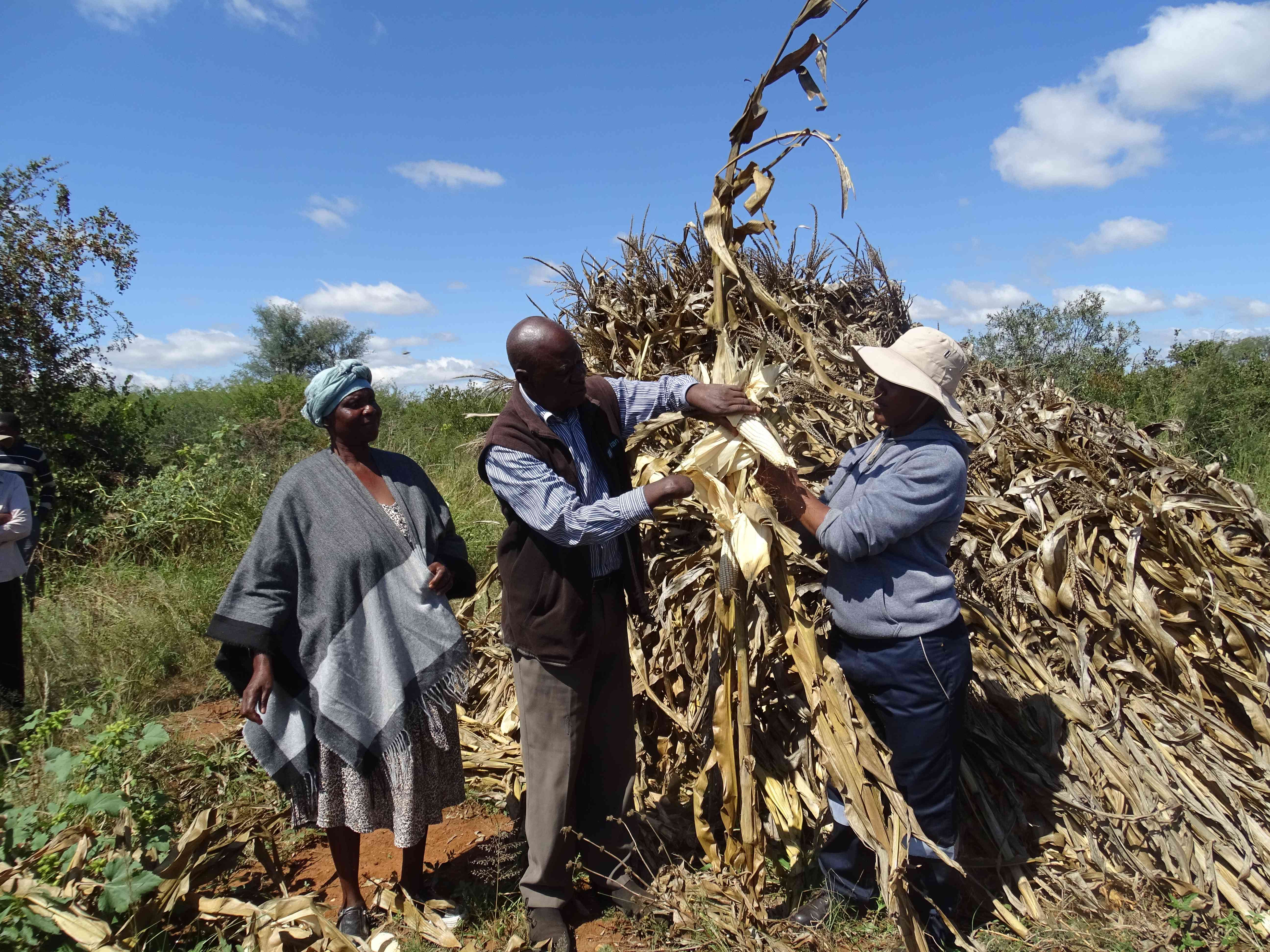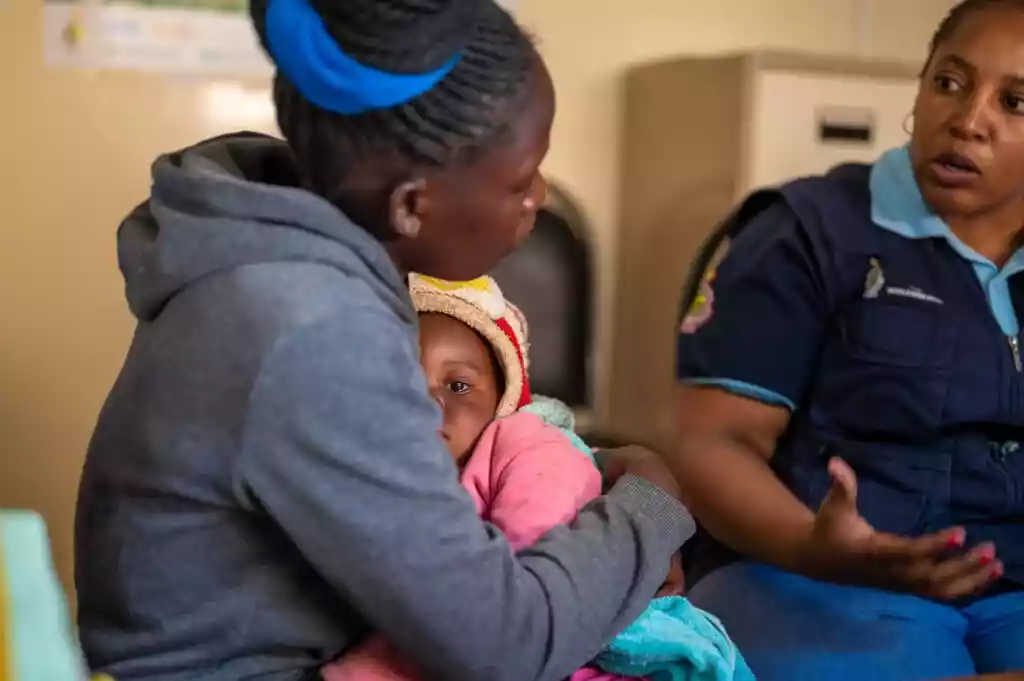
Across rural Matabeleland region, smallholder farmers are embracing a game-changing innovation, agricultural insurance tailored specifically for their needs.
At the forefront of this transformation is Joel Sibanda, a farmer from Ward 17 in Woolendale, Umguza district, who recently insured his maize crop against pests and drought through the new Farmer’s Basket Insurance scheme.
“From the day I learnt about the crop insurance scheme from our local Agriculture Technical and Extension Services (Agritex) officer, I really liked the product,” Sibanda said.
“This year we had a lot of pests which affected our yield, but I had my maize insured.
“The insurance period is now almost over and I will be submitting my claim after assessing the loss.”
Sibanda, who paid US$24 per hectare for his coverage, also grows tomatoes, sunflower, and vegetables on his plot and rears cattle.
He plans to extend insurance cover to his livestock as well.
Like many farmers in Matabeleland, he has become more aware of the financial risks associated with changing climate patterns and the growing threat of crop and livestock losses.
- News in depth: ‘It’s a grand heist’: Contractors, insurance firms fleece tobacco farmers
- Pandemic cripples insurance industry
- News in depth: ‘It’s a grand heist’: Contractors, insurance firms fleece tobacco farmers
- Pandemic cripples insurance industry
Keep Reading
The Farmer’s Basket Insurance product is an initiative of the Insurance Council of Zimbabwe (ICZ), supported by the Insurance and Pensions Commission.
It aims to extend coverage to small-scale and communal farmers long left out of traditional insurance models, which largely catered to commercial agriculture.
Through a model known as parametric or index insurance, payouts are triggered by specific weather events — such as drought, excessive rainfall, pests, or disease — rather than assessed losses. This allows farmers to receive timely support without long disputes or complicated verification processes.
Clive Ncube, a farmer from Huwana Ward in Bulilima District, Matabeleland South, also took part in the programme.
“Over the past years farmers have faced successive droughts. Last season I insured my sorghum and maize crop.
“ It was my first time, but I’m hoping to be compensated. The rains came late and ended early.”
Others, like widow Tichaona Ndlovu, are taking a comprehensive approach.
Based in a region heavily reliant on livestock, Ndlovu insured both her crops and animals.
“Last year farmers lost a lot of cattle due to drought. Because of the reoccurrence of these dry spells, I decided to insure everything,” she said.
“I urge others in the area to do the same.”
Livestock insurance premiums are calculated at three percent of an animal’s value, offering a practical solution for vulnerable farmers.
Bulilima district development coordinator Onismor Zogara applauded ICZ for the initiative.
“Insurance plays a vital role in the agriculture sector by providing financial protection to farmers against risks and uncertainties,” Zogara said.
“Matebeleland falls under Region 4r, which receives low rainfall.
“This project will assist farmers to maintain financial stability by getting compensation for losses. Insurance is critical for agricultural productivity, stability and growth.”
Following a successful pilot in Goromonzidistrict during the 2023–2024 season, the programme was expanded nationally.
To date, 20,411 farmers have enrolled for the 2024–2025 agricultural season across eight provinces: Matabeleland South (Bulilima), Matabeleland North (Umguza), Masvingo (Chiredzi), Manicaland (Buhera), Mashonaland East (Goromonzi), Mashonaland Central (Bindura), Mashonaland West (Hurungwe), and Midlands (Kwekwe South).
To encourage uptake and build trust in rural communities, ICZ partnered with Agritex to participate in field days — local agricultural competitions that reward farmers for excellence in crop and livestock management.
These events, held at farmers’ homesteads, became platforms for ICZ to engage directly with communities, offer demonstrations, and award prizes such as fertilizers, sprayers, wheelbarrows, and other tools.
Nicholas Sayi, head of operations at ICZ, emphasized that participation in these events has been pivotal.
“We realised this programme is not just about insurance.
It’s about developmental economics. It has helped us understand the level of progress and organisation in our rural communities.
The enthusiasm and eagerness to learn and enroll have been impressive.”
Field visits to places like the homestead of Ncube have revealed the programme’s deep impact.
“When you look at the level of participation, it’s very high,” Sayi said.
“It has shown that this insurance programme has the potential to transform rural economies by driving financial inclusion and supporting the goals outlined in the National Development Strategy one.”
Sayi revealed that ICZ is developing a complementary parametric livestock insurance product to be rolled out by July 2025.
“This expansion will offer farmers even broader protection against climate-related risks and help further stabilise rural livelihoods,” he said.
He also highlighted the crucial role media has played in spreading awareness about the program and called for continued support.
“Media coverage has been pivotal,” Sayi added. “Educational outreach remains essential. We are committed to reaching every corner of the country with insurance products that empower and protect our farmers.”
As Zimbabwe grapples with the dual challenges of climate change and rural poverty, initiatives like the Farmer’s Basket Insurance are proving that inclusive financial tools can be powerful levers for economic resilience and long-term growth.









